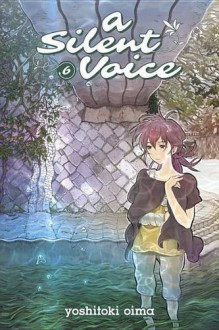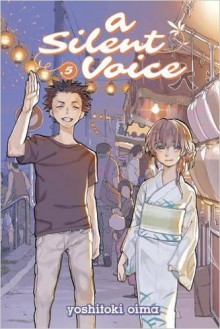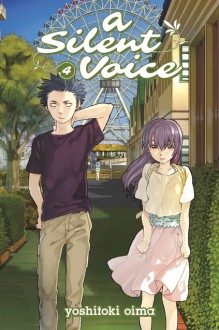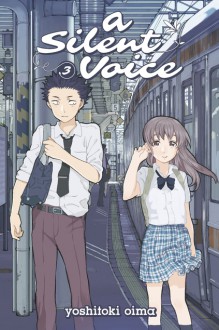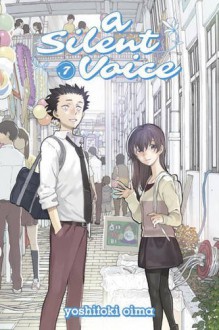
Shoya wakes up and is determined to truly listen to and look at people, even the ones who are cruel or who hate him. He's also determined to apologize to his friends. However, talking to people is harder than he expected, and
he freaks out a little when he sees Tomohiro's movie and accidentally shouts out that it's awesome. The movie is unfortunately not well received by a judge at a public screening, but everyone gets over that. After that, it's time to think of a post-high school future. Shoko wants to go to Tokyo to study to be a hairdresser, but Shoya is scared about her going to a big city. Meanwhile, Shoya decides to be a hairdresser too, in order to eventually take over his mom's business.
I definitely have some issues with this series as a whole, but this was a pretty good ending. It was nice seeing Shoya and Shoko's mom bonding over drinks and stories about their husbands leaving them, and I really liked Tomohiro's film, or at least the way the group worked themselves and their experiences into it. It was a silent film so that everyone, including Shoko, could enjoy it on the same level, and it dealt with bullying.
I disliked the way so much of this series came to be more about Shoya than Shoko, but in a way this volume turned that around a bit.
While there was a sense that Shoya had grown internally (even though he briefly took a few steps back when he tried to convince Shoko not to go to Tokyo), he hadn't thought about his future at all, and it showed. Him deciding to become a hairdresser didn't feel like something he really wanted to do, but rather like the only possible future he could think of for himself. On the plus side, he'd gotten to the point where this didn't drag him down or particularly bother him – it was just life, and he'd do the best with it that he could.
Shoko decision to become a hairdresser, on the other hand, had actual history. It turned out that that haircut that Shoya's mom gave her really made an impression on her and made her want to do that too. Which, now that I think about it, makes it even more painful that Shoya's mom couldn't bring herself to speak to Shoko while Shoya was in the hospital. Dang. Anyway, it felt like Shoko was moving forward with her life. If I remember correctly, there was also something about her finding a deaf hairdresser mentor in Tokyo.
The volume ended on a high note and felt pretty satisfying, even though, surprisingly, Shoko never did try to tell Shoya “I love you" again. Seriously, why oh why did that confession happen in volume 3?
I haven't been able to decide whether I'd recommend this series to others. On the one hand, I liked that the characters were complex and that there were very few black-and-white situations and relationships. It'd probably make for excellent discussions. On the other hand, so much of it was just horrible, painful, and exhausting, and the focus on Shoya over Shoko and almost complete lack of Shoko's POV makes me wonder about how good the deafness representation was.
(Original review posted on A Library Girl's Familiar Diversions.)

 Log in with Facebook
Log in with Facebook 
